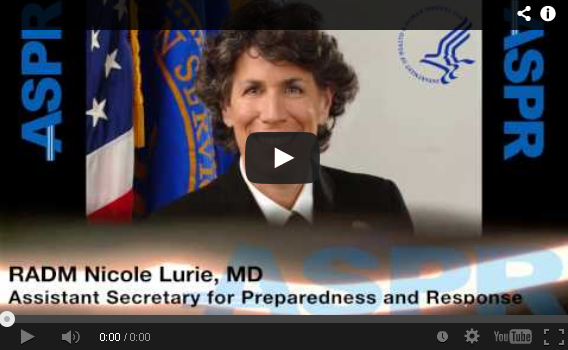Author: Ashley Small, Public Affairs Specialist,Office of the Assistant Secretary for Preparedness and Response
Disasters happen. Communities, regardless of size, often face hard questions that impact their ability to rebuild, recover, and become more resilient. Many communities make these choices based on their own past experience or lessons learned from others. But with research and sound science, communities can have the scientific evidence needed to support critical long-term recovery decisions.
ASPR has collaborated with the New York Academy of Medicine and the Institute of Medicine to engage the research community and examine how the response to Hurricane Sandy and recovery could be enhanced through scientific research. Experts from state health departments, community health organizations, federal government, and academic institutions identified rapid research areas that impact long-term recovery, like social connectedness in a community, and medical supply chain resiliency.
Over the next two years, ASPR will dedicate $8.6 million from the Hurricane Sandy Recovery and Rebuilding Supplemental Appropriations Act of 2013 to support research that examines long-term recovery of health systems and communities in areas of the country hard hit by Hurricane Sandy last year.
Check out what Dr. Lurie had to say about the importance of this research.


